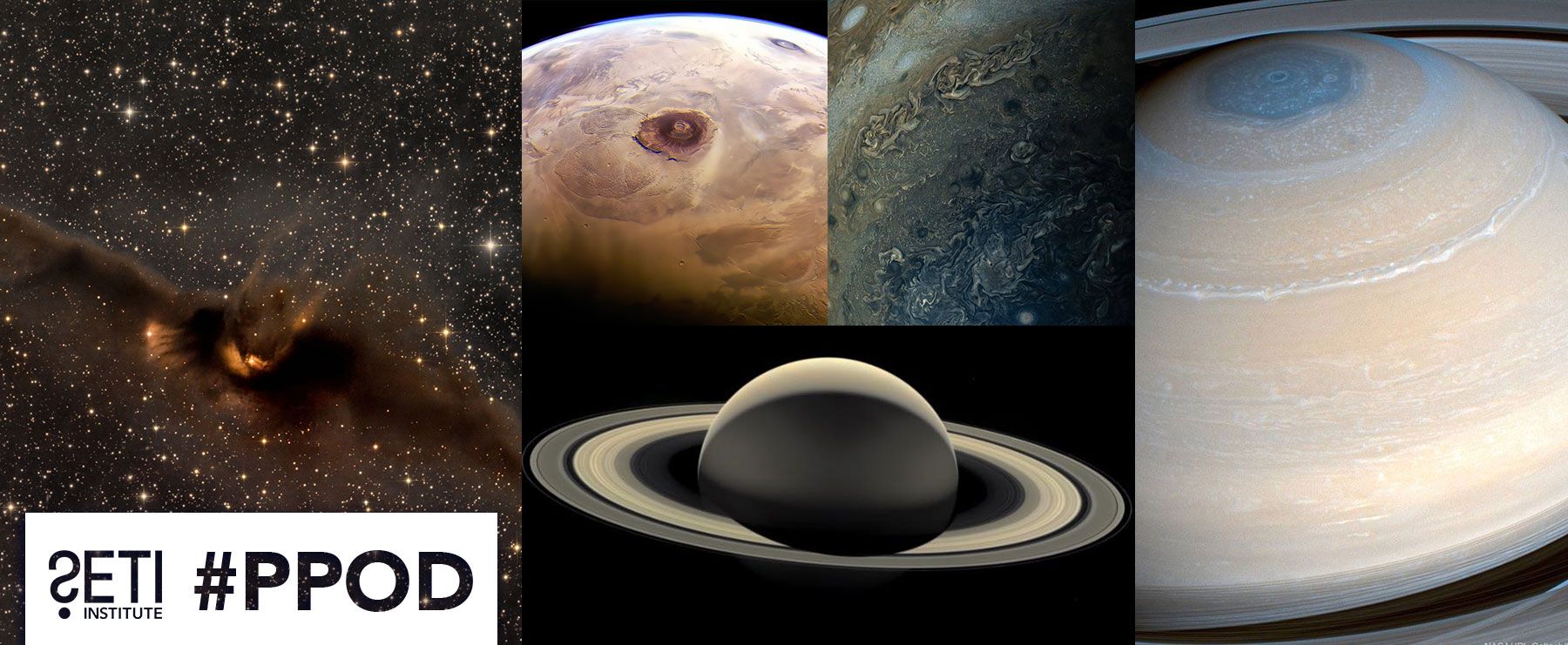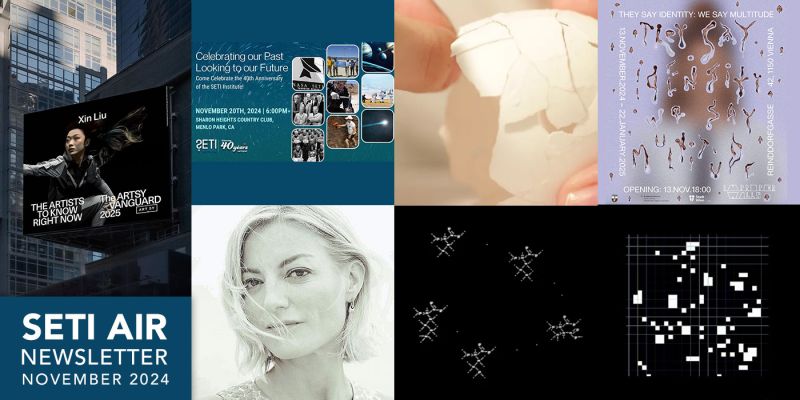
Planetary Picture of the Day
Week of July 11, 2022
Fly by Mars, Saturn and Jupiter in this week’s collection of planetary pictures!
Monday, July 11, 2022

Credit: NASA/JPL-Caltech/Space Science Institute
Cassini's 'Last Dance': A final portrait at Saturn
In the early afternoon of September 13, 2017, the venerable and much-loved Cassini probe captured this final portrait of Saturn and its main ring system, before plummeting to fiery destruction in the planet's hazy atmosphere just 48 hours later. We miss you, Cassini!
Tuesday, July 12, 2022

Credit: NASA/SwRI/MSSS/Gerald Eichstädt/Seán Doran
Southern Polar FFRs
A #JunoCam view of Jupiter's folded filamentary regions (FFRs) at the south pole as processed by Seán Doran, based on earlier processing by Gerald Eichstädt, using custom software. Taken during the NASA Juno spacecraft's close flyby, perijove 6.
Wednesday, July 13, 2022

Processing: Mark Hanson and Mike Selby, Mark Hanson Astrophotography
Sign up for our enews to get more science in your day: https://buff.ly/3c7l0DK
"The Cosmic Bat"
Located in Ophiuchus and rarely imaged, LDN 43 is a dark nebula consisting of very dense material blocking light from the background stars. Two cometary nebulae (GN 16.31.3 and GN 16.31.7) are found inside the dark nebula area, which certainly looks like a flying bat. The nebula spans 12 light-years at its estimated distance, about 1,400 light-years from planet Earth.
Imaged in LRGB on our RiDK 500 at Observatorio El Sauce, Chile.
Thursday, July 14, 2022

Credit: NASA / Cassini mission / JPL-Caltech / SSI
Image Processing: Maksim Kakitsev
Saturn in Infrared from Cassini
Many details of Saturn appear clearly in this infrared image taken by NASA Cassini's mission back in 2014. Bands of clouds show great structure, including long stretching storms.
Also quite striking in infrared is the unusual hexagonal cloud pattern surrounding Saturn's North Pole. Each side of the dark hexagon spans roughly the width of our Earth. The hexagon's existence was not predicted, and its origin and likely stability remains a topic of research. Saturn's famous rings circle the planet and cast shadows below the equator.
Friday, July 15, 2022

Credit: Emirates Mars mission/EXI/Thomas Thomopoulos
Mars Hope
Absolutely stunning image of Olympus Mons and the other Tharsis volcanoes on Mars captured by the Hope mission. Just **Wow**!





